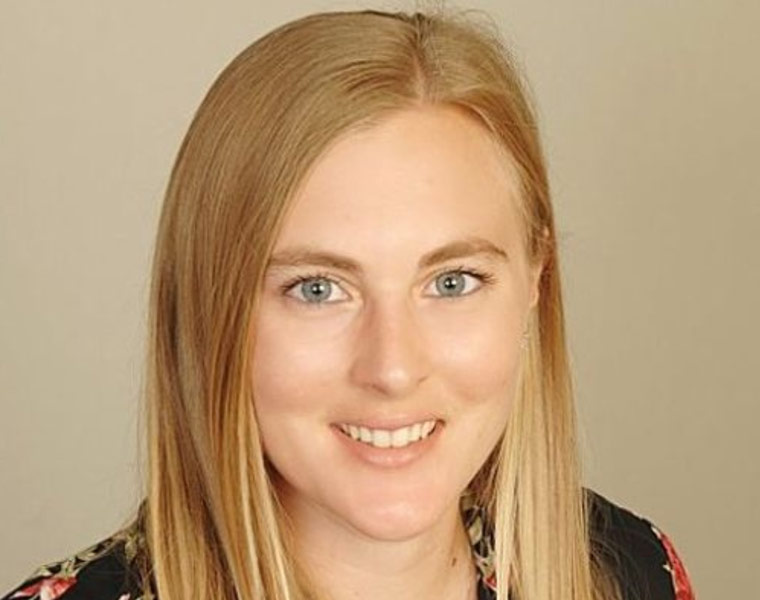
Lydia Kisley, the Warren E. Rupp Assistant Professor of Physics, and her small, interdisciplinary team of Scialog Fellows were awarded $55,000 each to pursue their project, “Stretching reality to discover the (un)knowns.” Together, Kisley, Ronit Freeman, associate professor of applied physical sciences at University of North Carolina at Chapel Hill, and Laura Sanchez, associate professor of chemistry and biochemistry at University of California, Santa Cruz, will develop a technique that could be applied to understanding the chemical signatures present in ovarian cancer.
The team will work together with specific responsibilities to map how chemicals change within different areas of a single cell, a resolution that is unachievable with most current methods. To do so, they will extend mass spectrometry, a method that can fingerprint what chemicals are present in cells, to new resolutions using stretchable materials. Freeman will develop unique, stretchable materials that cells can grow on, Kisley’s lab will stretch and image the materials with optical microscopes, and Sanchez will detect the chemical-level changes.
Scialog: Chemical Machinery of the Cell launched to spark collaborative research that could advance fundamental understanding of chemical machinery and reactions in the intact cell. In its last year, the Research Corporation for Science Advancement and the Gordon and Betty Moore Foundation awarded $1,320,000 to nine interdisciplinary teams. Kisley has been a Scialog Fellow since 2020.
Learn more about the Scialog awards and Kisley’s latest achievement
